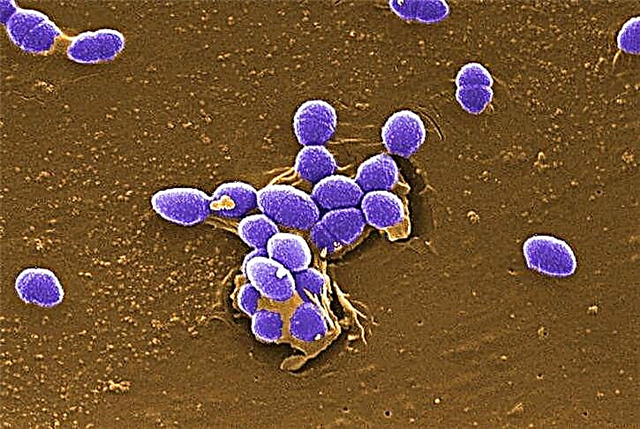The child undergoes the first medical examination while still in the maternity hospital. Doctors assess the condition of the newborn baby and take the necessary tests. Then he must visit the doctors at the place of residence at the clinic. Every mother needs to know which doctors a child needs to undergo at 6 months. The baby should be regularly shown to the doctor so as not to miss the development of a dangerous disease.

What kind of doctors does a child need to undergo at 6 months?
What the pediatrician checks on a six-month-old baby
By this age, the child can sit down or prepare to sit down. His back straightens. The toddler pulls all the surrounding objects into his mouth, so he actively learns and studies the world.
In six months, the doctor gives the child many vaccinations. The places where they are made can be somewhat painful. In addition, the baby may have a slight fever after vaccination.
Note! An increase in temperature after vaccination indicates that the crumbs are developing immunity correctly. Fever and pain can be reduced with infant paracetamol.
During the visit, the doctor performs the following actions:
- Weighs the child and measures their height.
- He makes the necessary vaccinations at his age from the list (from hepatitis B, diphtheria, whooping cough and tetanus, poliomyelitis, hemophilic infection).
- Assesses the general development and behavior of the child.
- Provides advice on healthy sleep.

Child's visit to the pediatrician
Your doctor will need more information while assessing your baby's overall development. The doctor's questions should be answered clearly and most importantly:
- Has the child been seen by a specialized doctor? If so, for what reason and what was the result of the inspection, were all recommendations followed?
- Do teeth appear?
- Does the baby make any sounds? The doctor may ask to describe everything that the baby "gives out": screams, laughter, muttering.
- Does the child play with objects? Does he pull them into his mouth, does he throw them? It is important for the mother to describe what the baby already knows how to do, whether he can search and catch small objects.
- Does the child sit down (on their own, or does this require the help of an adult).
- The doctor is also interested to know if the child can carry weight on the lower limbs if the mother tries to put him in an upright position.
- If the mother enters the room in silence, does the baby turn its head?
During the visit of a 6 month old baby to the doctor, it is necessary to discuss the following points:
- the dangers and risks of food allergies;
- possible sleep problems;
- the expediency of taking dietary supplements;
- what to do if the baby does not respond to sounds, looks pale.
Important! All children are different in their development. All doubts about the development of the baby should be discussed only with the pediatrician.
What specialists are needed for a half-year-old child
By the age of six months, the child should have seen several doctors. In no case should you ignore medical examinations and medical recommendations.
List of doctors
| Pediatrician | This is the most important doctor in the life of every baby. A monthly visit to this specialist is recommended until the baby reaches a year. He must weigh the child, measure the circumference of the head, chest. The most important task of the pediatrician is a comprehensive examination of the baby. He will help to find out if there are any delays in his development. If alarming symptoms are noticeable, the child is sent for additional examination. The pediatrician should advise when to get routine vaccinations. |
|---|---|
| Neuropathologist | A visit to a neurologist in the sixth month of life is mandatory. The doctor should evaluate the baby's muscle tone and reflexes. It is also important to assess the mental health of the infant. |
| Orthopedist | This doctor checks to see if the folds on the legs are symmetrical and how they are divorced. This procedure helps to detect hip dysplasia at an early stage. |
| Cardiologist | A visit to this doctor is mandatory if there is a pediatrician referral. |
| Surgeon | This doctor detects hernias, congenital dislocations, torticollis. He also examines the genitals. This is especially important for boys because it helps detect cryptorchidism. |
| ENT | The doctor checks the patient's hearing acuity, as well as the condition of the nasopharynx. A visit to this doctor at six months is mandatory. |
| Dentist | This specialist examines the little patient's mouth and monitors the normal teething of milk teeth. |

Appointment with a neurologist
What doctors pass at 9 months
By the age of nine months, the child should visit the following doctors:
- pediatrician;
- a surgeon;
- ophthalmologist;
- neuropathologist;
- orthopedist;
- cardiologist;
- ENT doctor;
- dentist.
Tests for a half-year-old child
Young children cannot talk about their problems and feelings. In order to early detect a possible disease, regular tests are required. This is very important, because some diseases occur without pronounced symptoms.
By the age of six months, you need to pass the following tests:
- General blood test. The parameters of erythrocytes, leukocytes, hemoglobin, platelets and ESR are investigated.
- General blood analysis. Transparency, specific gravity, presence of protein, glucose, leukocytes and erythrocytes are investigated.

Blood sampling
- Biochemical blood test. The doctor examines indicators such as sugar, total protein, levels of urea and creatinine, bilirubin, calcium.
If these analyzes are of little information, then additional ones are prescribed:
- for blood clotting;
- urine test according to Nechiporenko or Zimnitsky;
- urine analysis for sugar;
- bacterial sowing;
- coprogram.
Health groups for six month olds
There are such health groups for children of six months of age:
- 1 group. These are physically healthy children with a developed psyche. They rarely get sick, their body is highly resistant.

Healthy child
- Group 2 - these are children with some functional deviations in development. They do not have chronic diseases.
- Children of the third group have compensated chronic diseases. Their body resistance is reduced. Such children must be registered with the dispensary.
- Group 4 - children with chronic diseases in the subcompensated stage. They may have a congenital abnormality or a developmental defect. In children, this condition is observed after an exacerbation of the disease, deterioration in general health. Their body resistance is sharply reduced.
- Children of the 5th group have chronic decompensated diseases. This also includes patients with disabilities, cancer and other serious conditions.
What vaccinations need to be done
At the age of 6 months, the baby needs to get the following vaccinations from the list:
- from hepatitis (third dose is administered);
- from tetanus, diphtheria and whooping cough (third vaccination) and additionally the polio vaccine;
- from Haemophilus influenzae (third dose);
- from rotavirus infection (also the third dose).

Infant vaccination
Vaccinations and medical examinations are mandatory. Failure to comply with the preventive vaccination calendar will make the baby vulnerable to infections.
Knowing which doctors are at 6 months with a child helps to respond in time to the slightest changes in development. Parents are required to visit all appropriate professionals. If necessary, the baby is referred to other doctors for examination.



